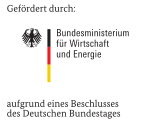
WordPress
WordPress is the most widely used content management system worldwide; it runs unproblematically with almost all web space providers. Originally designed as a pure blog system, WordPress quickly achieved widespread use in the world of blogs, but was gradually developed into a fully-fledged CMS. Today, WordPress can be used to build complex web presence, shops, and even community platforms.
With the standard installation and one of the included standard designs, content can already be immediately created, enriched with images or other media, and tagged with keywords. Contributions are automatically sorted and listed by date on the start page. If you're not looking for any special functions or individual design for your web presence, you will hardly find an open source CMS that allows you to build your web presence faster.
For requirements that go beyond the standard functions, thousands of plugins are available free of charge in the central plugin directory on WordPress.org; the installation is accompanied by easy-to-understand explanations. Plugins can be updated at the touch of a button, provided the code has not been tampered with. Critical security updates are even installed automatically.
The general possibility to apply a bit of PHP knowledge in order to build in or modify functions is tempting, but don't try to save money in the wrong circumstances. Get a professional to do it - otherwise you might jeopardize the update capability. Especially for complex requirements such as a multilingual online shop, professional support is indispensable, but such help can also be immensely helpful in view of the innumerable (and sometimes costly) selection options for plugins.


